Every year, organisations from across Belize come together to organise “reef week”, with a range of activities highlighting the crucial role of coral reefs in the country’s economy, food security and cultural heritage. In Sarteneja, Blue Ventures celebrated the event as a special opportunity to raise awareness about the extraordinary value of coral reefs with local youth.
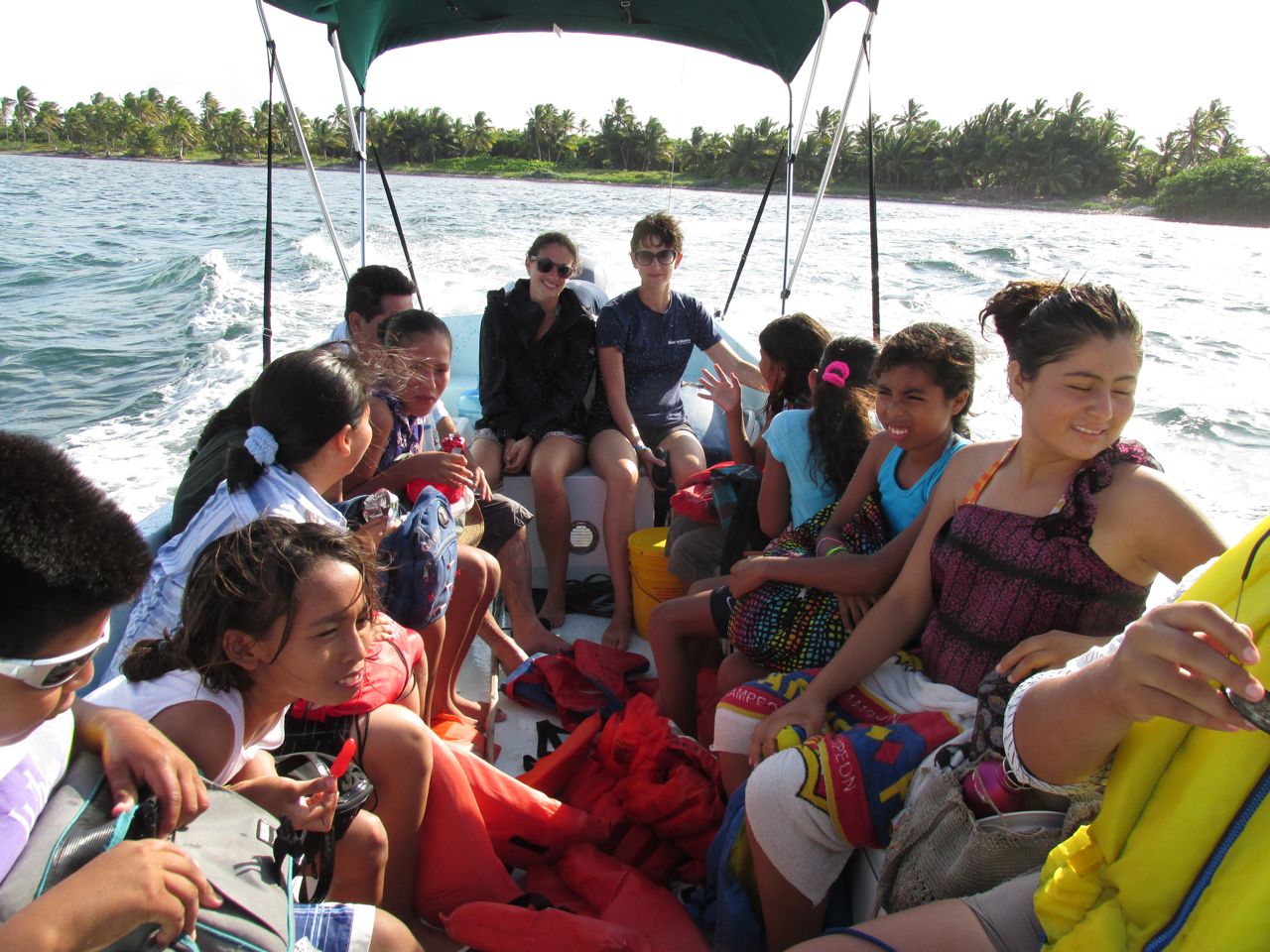
Jen and I on the boat with the students, heading towards Bacalar Chico Marine Reserve
On Sunday, the first day of this special week, we organised a field visit to Bacalar Chico Marine Reserve for a group of young people from Sarteneja, in collaboration with the Sarteneja Fishermen Association, as part of their initiative to raise awareness about and promote the targeting of invasive lionfish. We couldn’t have found a better way to start the day than by giving these students the possibility to witness for themselves the beauty of the coral reefs. All but one of the children had never been snorkelling before, so they were extremely excited! This lucky group had been selected for their exceptional hard work and enthusiastic participation in an educational programme held on the previous Sunday. The day started early as we left Sarteneja to reach the San Juan Fisheries Ranger Station.
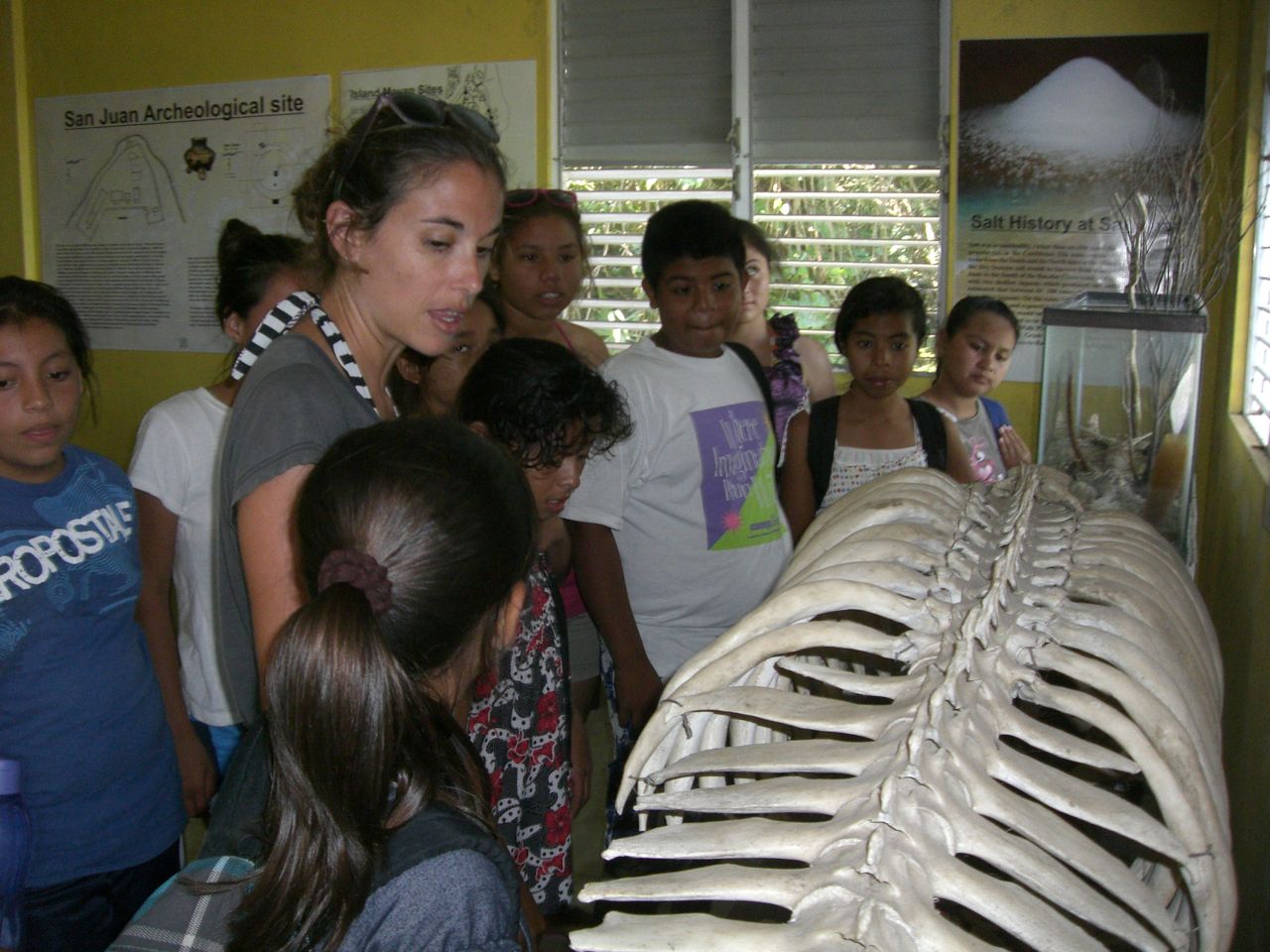
“Who can guess what this skeleton is?” It’s not a dinosaur as some of the students suggested, but a manatee!
Here we visited the museum, climbed up the observation tower for a great view of all the surroundings, and finally did our first test snorkel. Some time was necessary for the children to get used to the equipment and get past the fear of deeper water, making sure they could totally enjoy the experience. We had a second snorkel in the mangroves, where we witnessed big schools of baby fish finding protection between the roots of the mangroves.
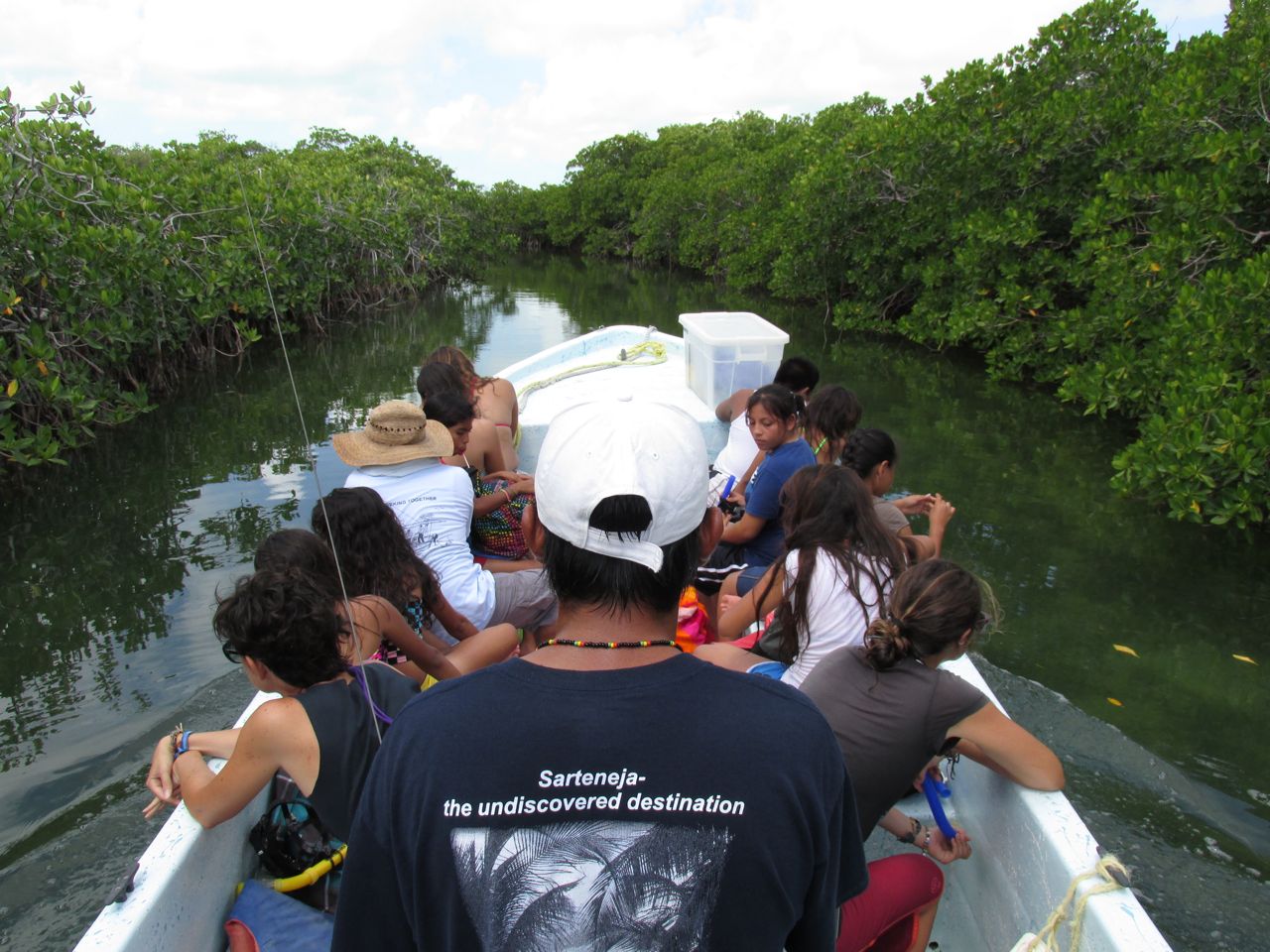
As we slowly motor down the old Mayan channel cut through the mangroves, students spot rays and fish
The last and most beautiful part of the trip was snorkelling on the barrier reef, in a wonderful spot known as Barracuda Patch. It was a fantastic experience for each of us to share the children’s enthusiasm as we pointed out the incredible creatures inhabiting the reef, and received excited hand squeezes in return.
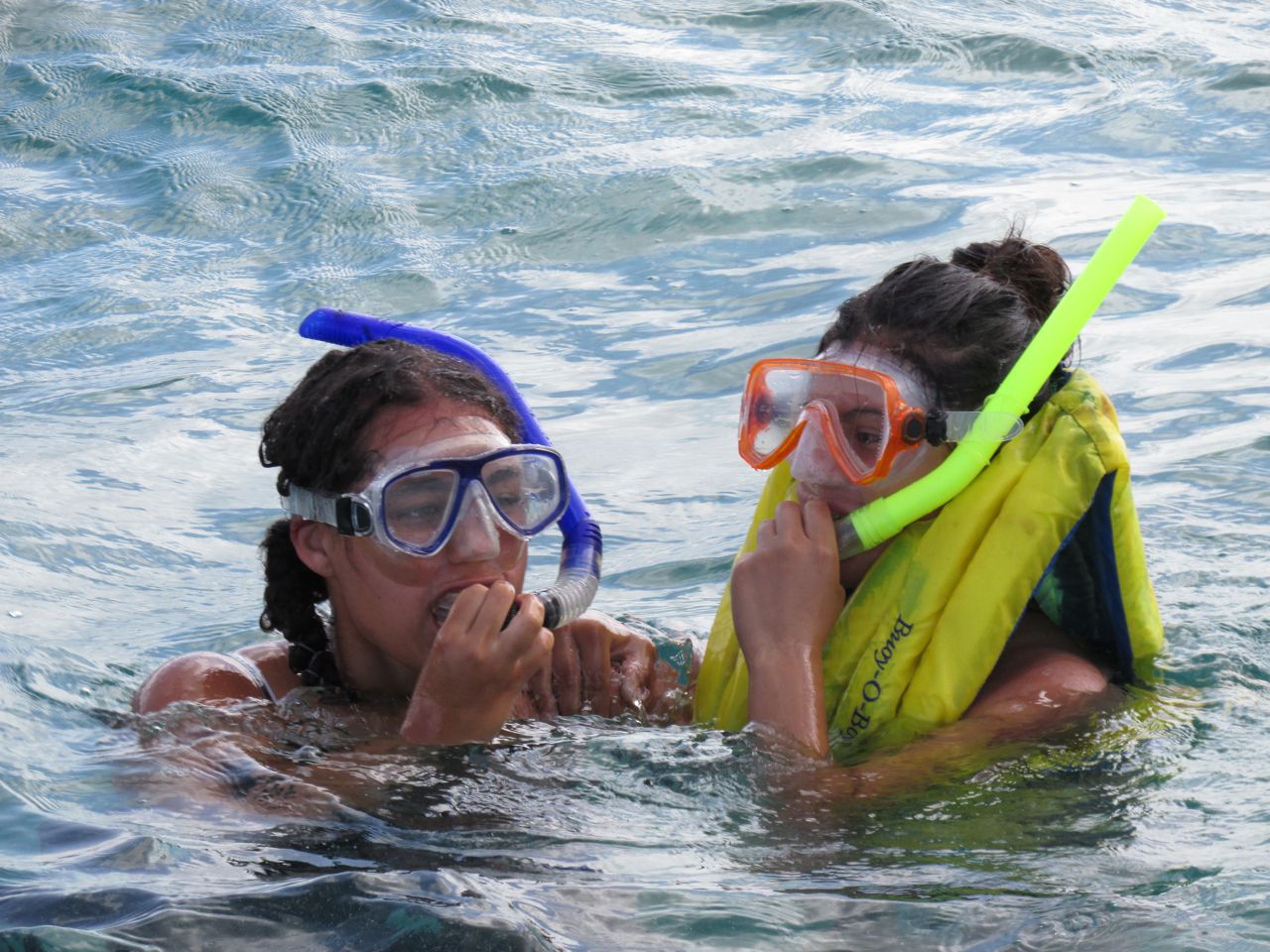
Our expedition volunteers made it possible for us to have one adult supervising each child in the water, making the students feel more secure
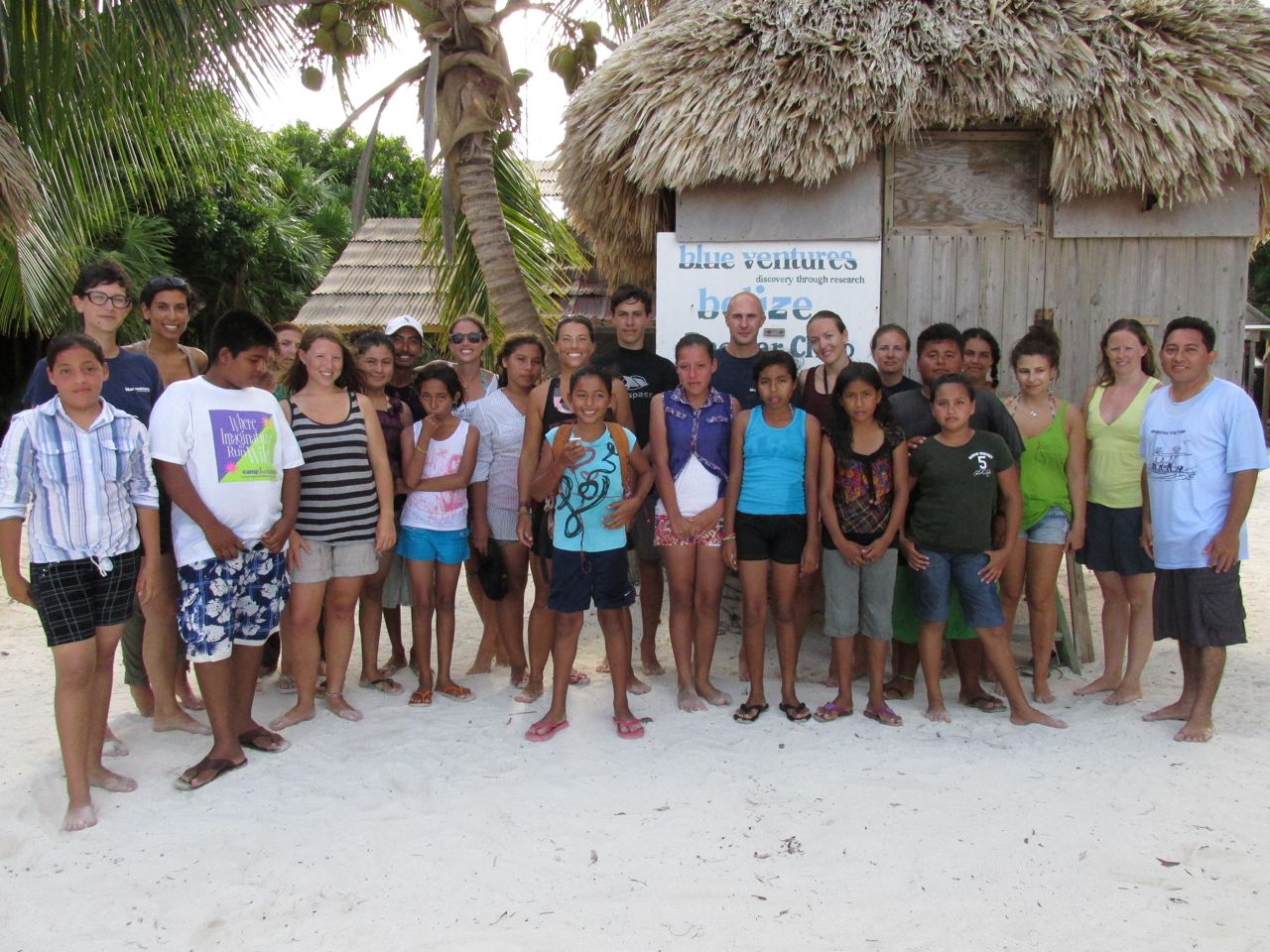
A group photo of the Sarteneja students and BV expedition volunteers at Bacalar Chico Dive Camp
On Tuesday and Wednesday, our activities continued in the schools. I visited both of the Sarteneja primary standard II classes to talk about coral reefs. As the students listened to the presentation, they marvelled at the pictures and their curiosity for the reef with its abundance of different creatures increased.
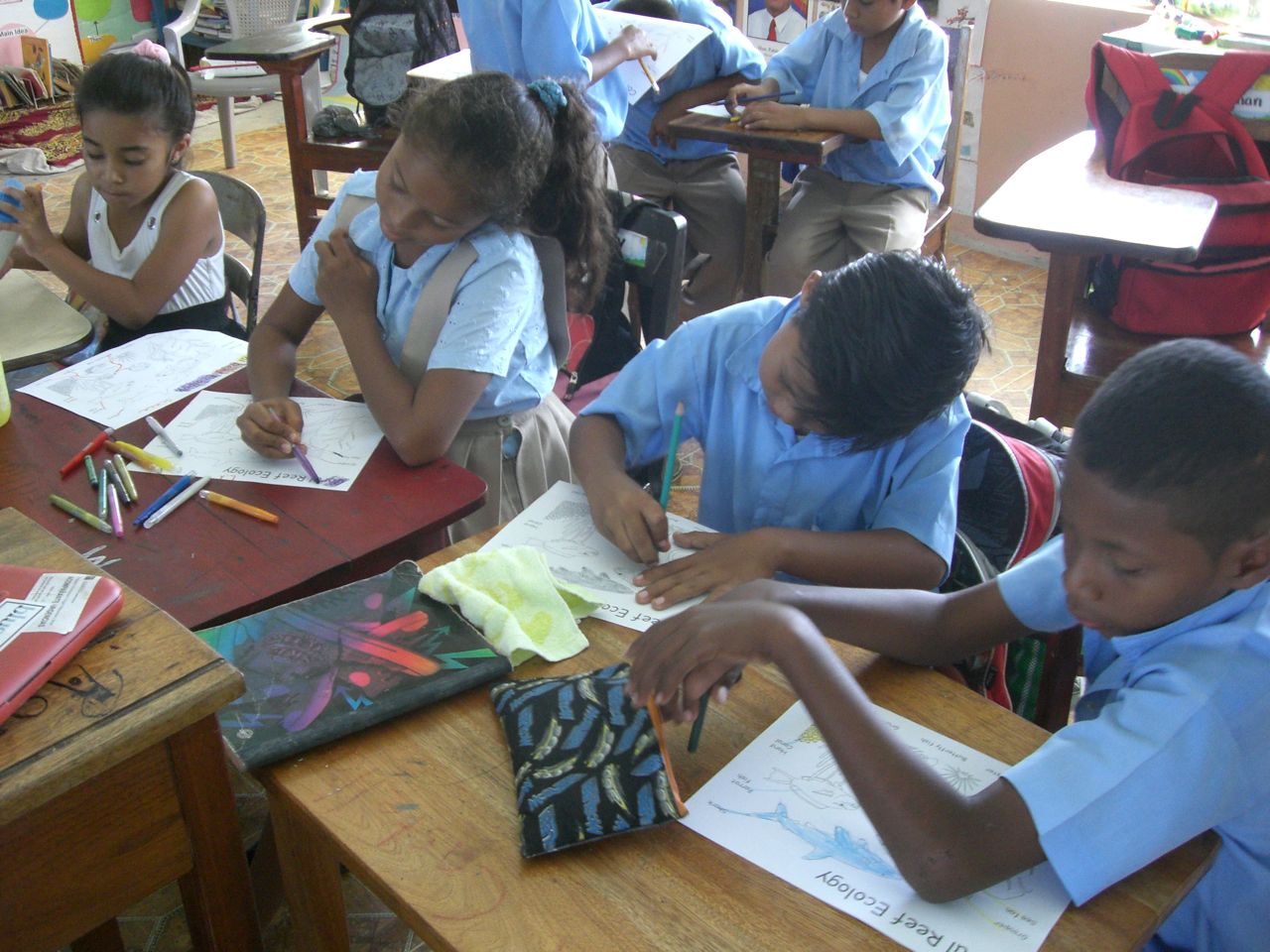
To better understand how important reefs are for biodiversity, students did an activity in which they had to colour in and match the names to drawings of different reef species
The presentations were followed by different creative activities. As I left the class, I received lots of lovely pictures and phrases written by the children about what they had learned. One of my favourites is: “I learned about corals, I learned that we should protect them because they give fishes homes,” by Lianna.
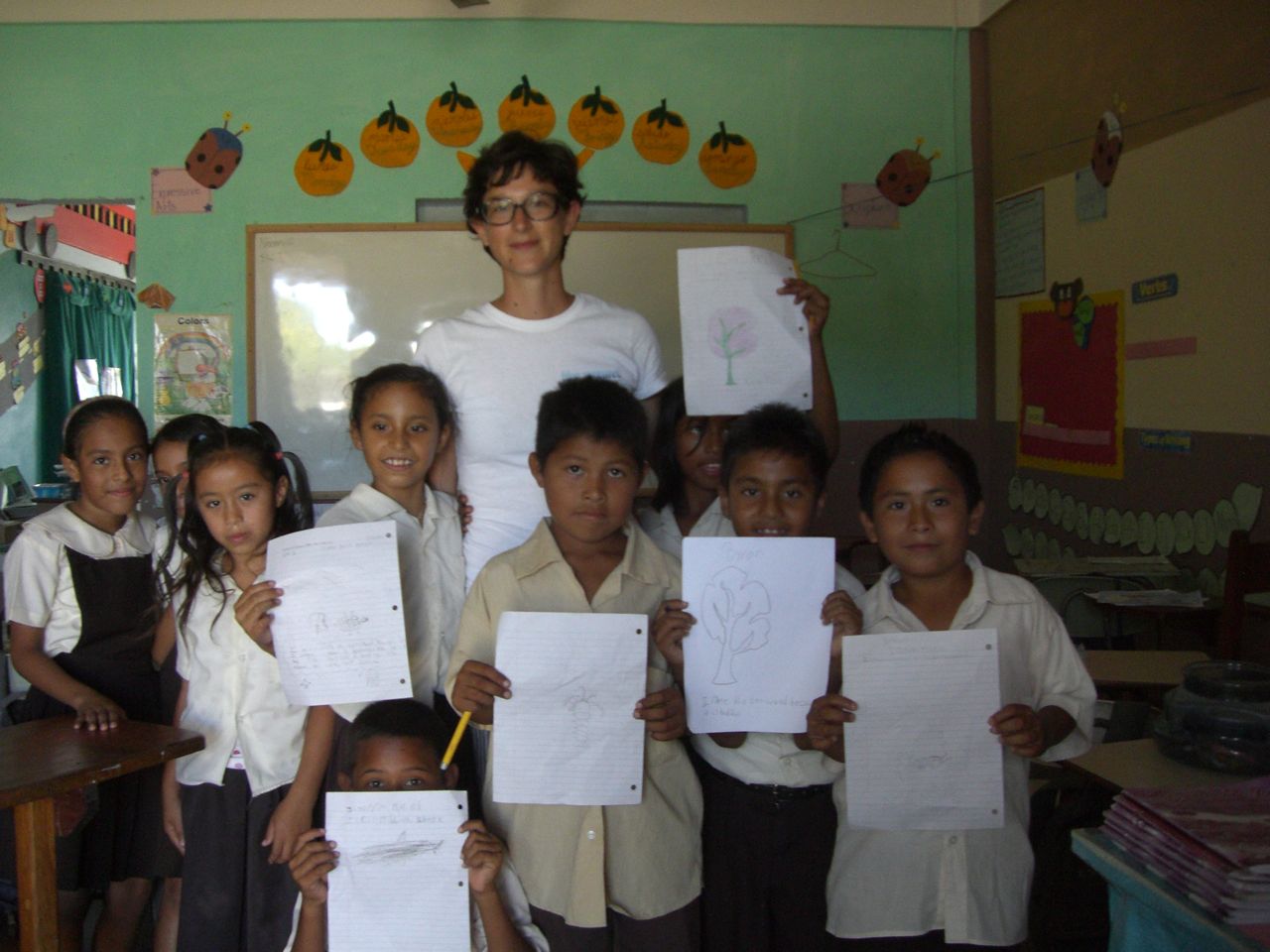
Nazarene school children proudly holding up their coral reef drawings
Finally, on Thursday, the Healthy Reefs Initiative invited our Belize country coordinator, Jen Chapman, to give a presentation on our invasive lionfish research and management programme at the Coastal Zone Management Authority and Institute. The presentation began by reviewing the current status of lionfish in Belize and the threats that they pose to reefs and fisheries, as well the the need for diversification of Belize’s fisheries.
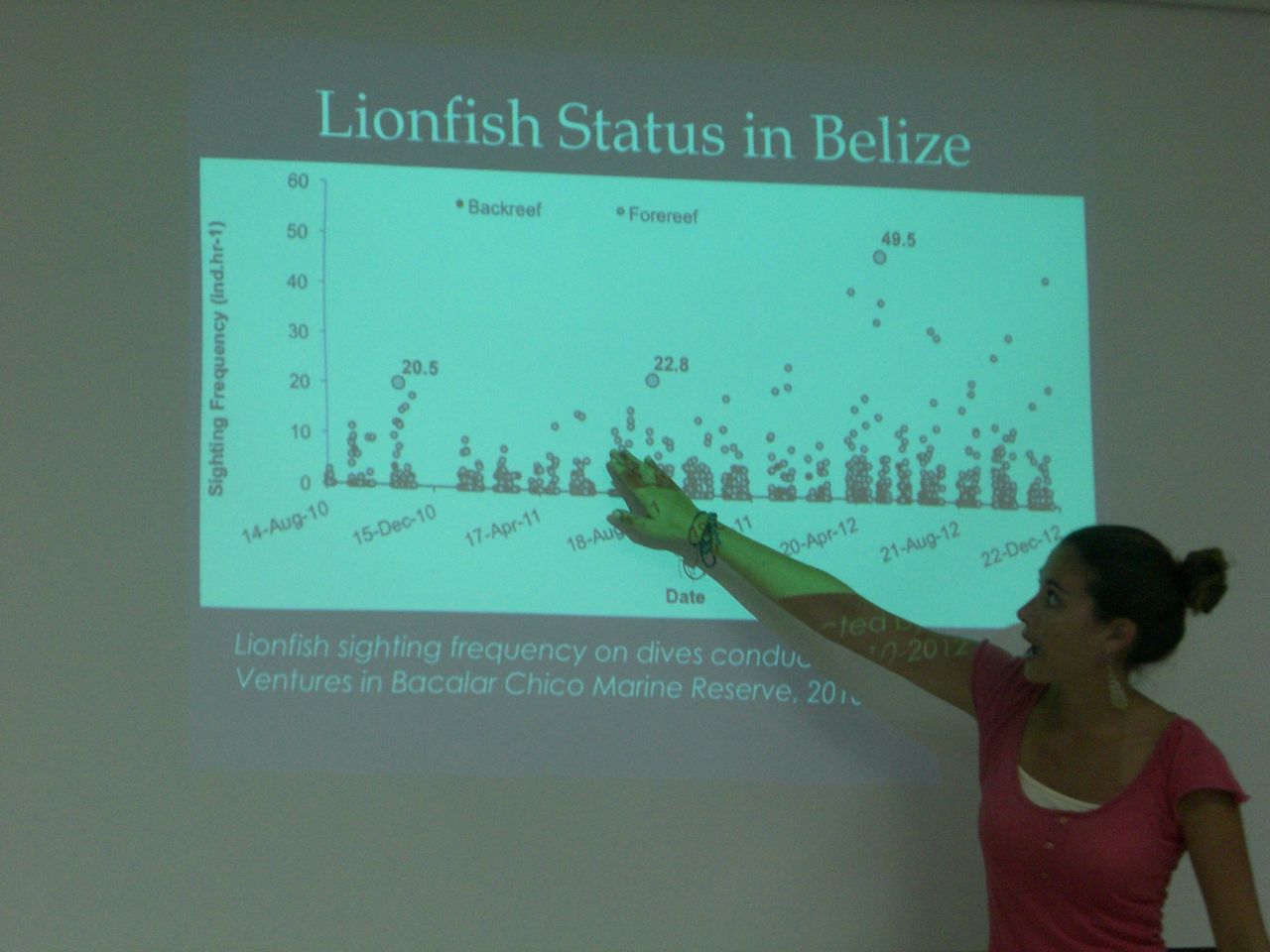
Jen points out the strong increase in lionfish sighting frequencies during dives in Bacalar Chico
Developing active and diverse markets that provide long-term economic incentives for lionfish removals, ranging from domestic trade of meat through to speciality tourism, not only reduces the negative impacts of invasive lionfish, but also provides fisheries and livelihood diversification. Barriers to fulfilling these as yet unmet opportunities were identified, and possible solutions discussed: one student in the audience suggested a lionfish-themed festival, much like those held in across Belize to celebrate the beginning of the lobster season.

